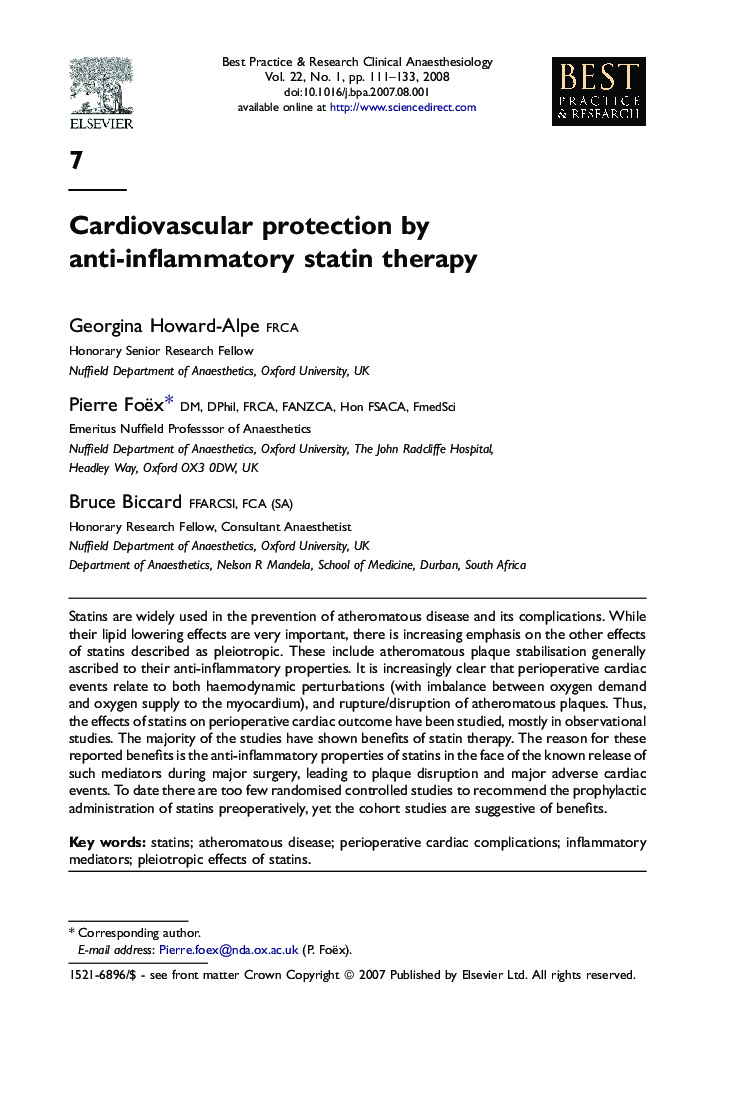| Article ID | Journal | Published Year | Pages | File Type |
|---|---|---|---|---|
| 2748827 | Best Practice & Research Clinical Anaesthesiology | 2008 | 23 Pages |
Abstract
Statins are widely used in the prevention of atheromatous disease and its complications. While their lipid lowering effects are very important, there is increasing emphasis on the other effects of statins described as pleiotropic. These include atheromatous plaque stabilisation generally ascribed to their anti-inflammatory properties. It is increasingly clear that perioperative cardiac events relate to both haemodynamic perturbations (with imbalance between oxygen demand and oxygen supply to the myocardium), and rupture/disruption of atheromatous plaques. Thus, the effects of statins on perioperative cardiac outcome have been studied, mostly in observational studies. The majority of the studies have shown benefits of statin therapy. The reason for these reported benefits is the anti-inflammatory properties of statins in the face of the known release of such mediators during major surgery, leading to plaque disruption and major adverse cardiac events. To date there are too few randomised controlled studies to recommend the prophylactic administration of statins preoperatively, yet the cohort studies are suggestive of benefits.
Related Topics
Health Sciences
Medicine and Dentistry
Anesthesiology and Pain Medicine
Authors
Georgina (Honorary Senior Research Fellow), Pierre (Emeritus Nuffield Professsor of Anaesthetics), Bruce (Honorary Research Fellow, Consultant Anaesthetist),
